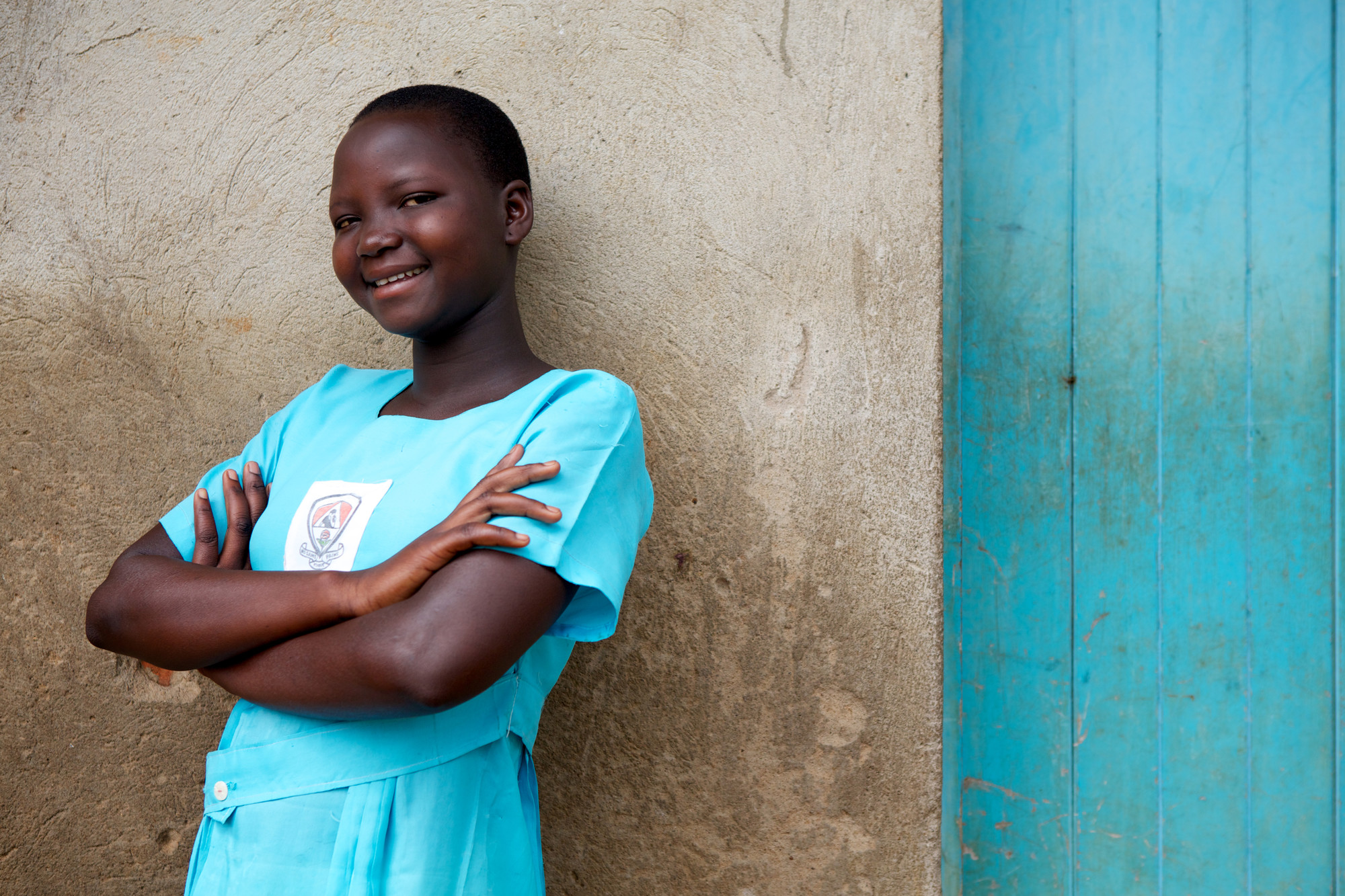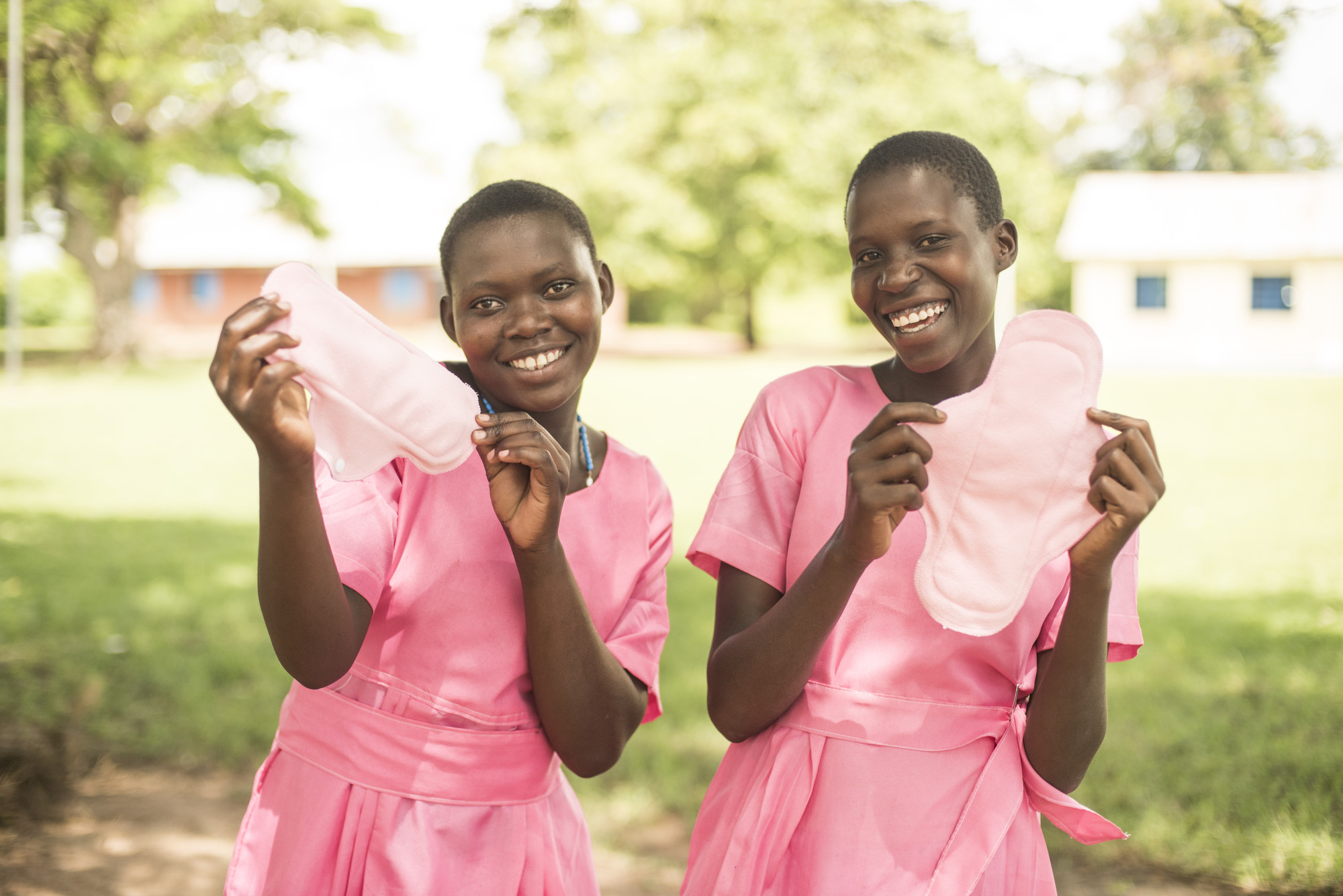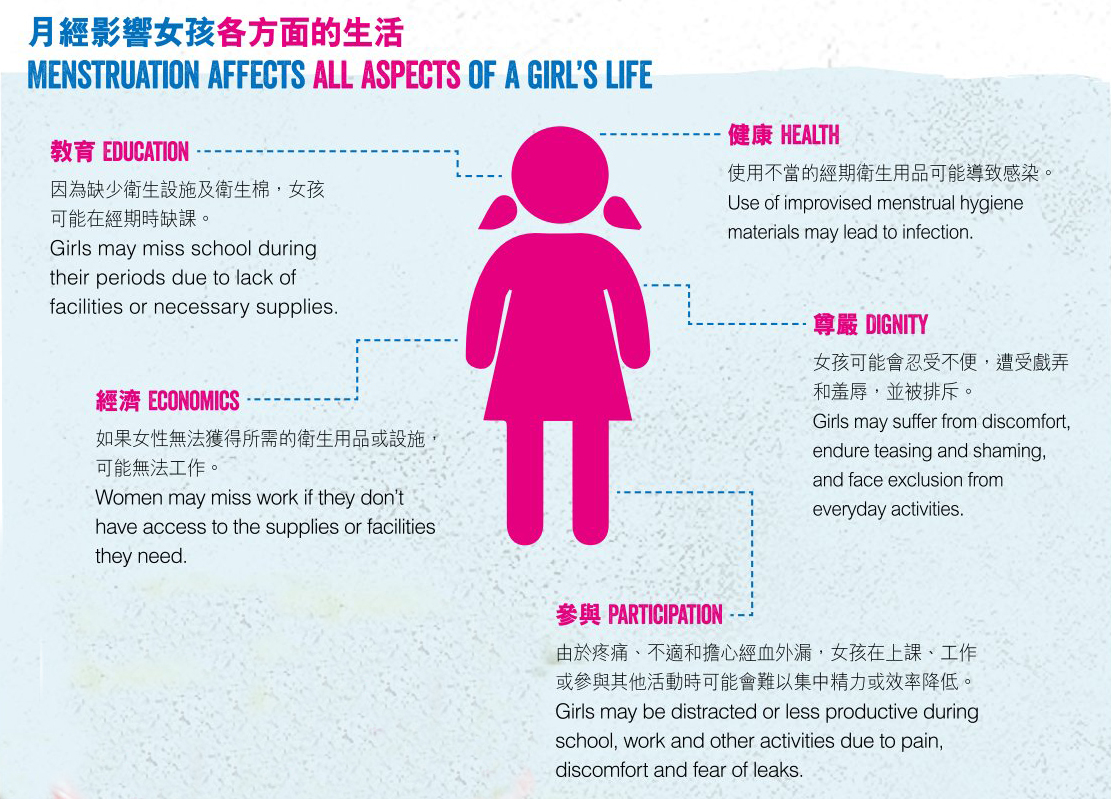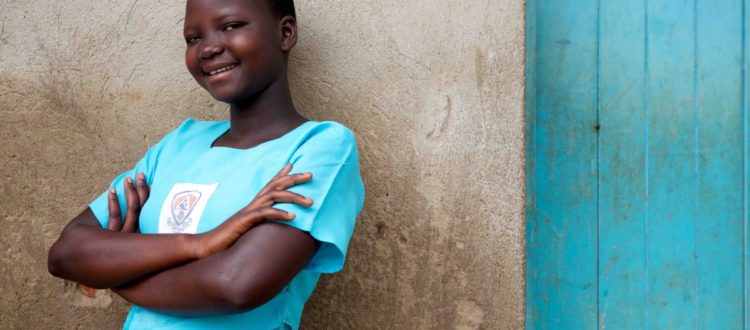The Menstrual Taboo
The average woman menstruates for 3,000 days during her life time. It’s a normal biological process, but there are still negative beliefs and taboos around periods in developing countries which hold girls back, causing them to drop out of school and suffer from bullying and unfair treatments.
Miss School During Periods
In Hong Kong, sanitary pads can be easily found in supermarkets. However, in Uganda, many girls just use rags, newspapers or even leaves to curb the flow of blood.
“I had my first period when I was 15 and my mother never talked to me about it. My friends told me that when I started my periods I should use a rag. They didn’t explain it,” Maureen, 16, said. “Because of menstruation I missed school a lot. I was fearful of going to school when I had it.”

Now Maureen doesn’t fear about her periods and can go to school every day.
Because of shame, fear of leaking and teasing from boys, 28% of girls like Maureen choose to skip school during their periods. These absences lead to girls getting fewer qualifications, depriving of job opportunities and spending less time building life skills.
Partnered with a local organisation, Plan distributes reusable sanitary pads to girls and runs talks in schools to both girls and boys to break down the stigma surrounding menstruation. “All the girls come to school every day and our grades are better,” says Maureen. “No one is upset about getting their periods anymore.”
Stop the Myths
Millions of girls around the world are facing different difficulties and challenges because of menstruation: only 12% of women and girls in India use sanitary pad, and they are not allowed to enter the kitchen or cook during their periods as some people believe it will cause food to go bad; in Nepal, female on their periods are isolated in separate rooms and are not allowed to contact other people; in Burundi, during periods female cannot bathe near any shared utensils as people believe menstrual blood can kill family members…

Girls are happy to receive reusable sanitary pads.
Through menstrual health programming in Asia and Africa, such as building safe and clean toilets for girls, distributing sanitary pads, increasing menstrual hygiene awareness in communities, Plan seeks to ensure that girls and women manage their periods safely, confidently and comfortably.

